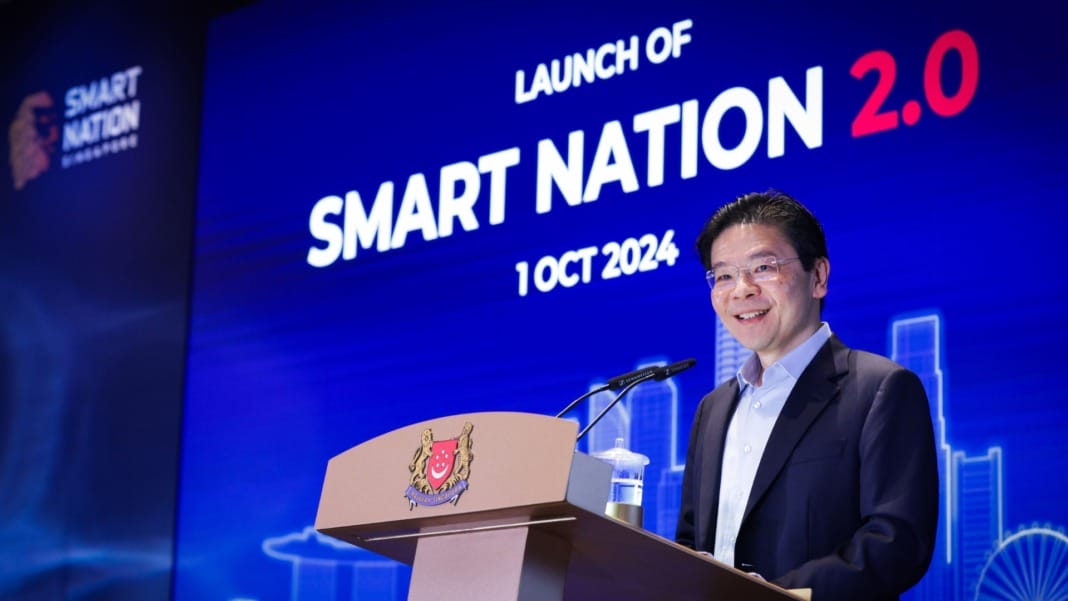Singapore has been a global leader in digital transformation since launching the Smart Nation initiative in 2014. Over the years, the city-state has embraced technology to enhance the quality of life, improve public services, and create new economic opportunities. As Singapore moves into the next phase of its Smart Nation vision, the focus is on advancing digital innovation, strengthening cybersecurity, and ensuring inclusivity in a rapidly evolving technological landscape. This transition is rooted in the lessons and achievements of the past, setting a robust foundation for future progress.
This ambition has been brought to life through carefully planned initiatives that touch every aspect of society, laying a strong foundation for future innovation. The Smart Nation initiative is about building a society where technology empowers every citizen, business, and government agency. This vision reflects Singapore’s ambition to harmonise technology and societal progress, making it a forward-thinking nation. Singapore has consistently set global benchmarks for smart city development, from digital identity systems to AI-powered healthcare. Now, as the nation enters a new chapter, it faces both exciting opportunities to push boundaries and complex challenges that require innovative solutions.
Building the foundation of Smart Nation
The initial phase of the Smart Nation initiative laid the groundwork for widespread digital adoption across various sectors. These foundational projects, such as SingPass, the National Digital Identity system, and the Smart Nation Sensor Platform, streamlined government services and improved urban management. Digital payments, through platforms like PayNow, have become commonplace, making cashless transactions seamless for both individuals and businesses. These efforts illustrate how digital infrastructure has transformed daily life, fostering convenience and efficiency at all levels.
In urban mobility, real-time data sharing has reduced traffic congestion, while trials of autonomous vehicles point towards a future of smarter transport systems. Healthcare has also benefited from digital tools, with telemedicine and AI-powered diagnostics improving patient care and accessibility. The integration of these technologies demonstrates how innovation can address complex urban challenges, enhancing quality of life for citizens.
Education has not been left behind, with digital classrooms and e-learning tools enhancing traditional teaching methods. Students can now access personalised learning experiences through data-driven platforms, ensuring they are well-prepared for a digital economy. This shift modernises education and ensures that Singapore’s future workforce is equipped with the skills needed to thrive in a technology-driven world.
Singapore’s strong digital infrastructure, including widespread high-speed internet and robust cybersecurity frameworks, has provided the backbone for these transformative initiatives. By establishing these pillars early, Singapore has created a launchpad for innovation that can evolve with emerging technologies.
These achievements have not only transformed daily life but have also prepared Singapore to tackle emerging challenges and seize opportunities in its next phase of transformation. The early adoption of data-driven governance has also allowed Singapore to respond proactively to urban challenges. Predictive analytics and smart technologies have enhanced resource allocation and crisis management, demonstrating the practical benefits of a connected nation. Such proactive measures underline Singapore’s ability to leverage technology for resilience and sustainability.
The next chapter: Smart Nation 2.0

Having established a strong digital foundation, Singapore is now poised to enter its next phase: Smart Nation 2.0. This chapter builds on earlier successes while addressing new opportunities and challenges. With the groundwork laid, Singapore is now setting its sights on advancing trust, fostering growth, and building an inclusive community to realise the full potential of its Smart Nation goals.
- Trust: Building digital trust is a priority, with cybersecurity measures being reinforced to protect critical systems and personal data. Singapore’s Cybersecurity Act and partnerships with global experts aim to create a secure digital environment. Trust will be the cornerstone of Singapore’s digital ecosystem, ensuring confidence among citizens, businesses, and investors.
- Growth: The government is increasing investments in emerging technologies such as artificial intelligence (AI) and data analytics. A dedicated S$120 million AI adoption fund aims to drive AI integration in the healthcare, education, and logistics sectors. These investments signify Singapore’s commitment to staying at the forefront of technological advancements, driving economic growth and competitiveness.
- Community: Ensuring inclusivity is essential as technology evolves. Efforts are being made to bridge the digital divide, with training programmes and community initiatives helping citizens, especially the elderly and underprivileged, gain digital skills. This focus on inclusivity highlights Singapore’s vision of technology as a unifying force.
Singapore is also encouraging public-private partnerships to accelerate digital transformation. Collaborative efforts between the government, businesses, and research institutions will be critical in addressing evolving technological demands. These partnerships will spur innovation and ensure that solutions are practical and widely adopted.
The government is exploring further digital tools for governance, including enhanced data-sharing frameworks, to ensure transparency and efficiency in public services. These measures will be key in maintaining public trust and engagement. By leveraging technology to improve governance, Singapore continues to set an example of how innovation can enhance accountability and service delivery.
Innovations driving transformation
Singapore’s nationwide 5G rollout marks a significant milestone in its digital transformation journey. With ultra-fast, low-latency connectivity, manufacturing, healthcare, and education industries are expected to see major improvements. 5G is more than just a technological upgrade; it’s a foundation for next-generation applications that will redefine how industries operate.
These innovations are pivotal in reshaping Singapore’s landscape. Sustainability is another area where technology is playing a crucial role. Smart energy grids, efficient waste management systems, and urban farming initiatives are helping Singapore tackle environmental challenges. These initiatives emphasise Singapore’s commitment to integrating sustainability into its digital agenda, ensuring long-term benefits for both people and the planet.
AI will continue to shape Singapore’s digital landscape. The National AI Strategy focuses on enhancing productivity, optimising public services, and improving citizens’ lives through data-driven decision-making. From predictive healthcare to personalised education, AI holds transformative potential across multiple domains.
In addition to 5G efforts and AI, digital twin technology is deployed in urban planning. Virtual models of physical environments are helping authorities design smarter, more resilient cities while reducing costs and resource use. This technology offers a glimpse into the future of urban development, where data-driven insights guide sustainable and efficient planning.
The adoption of blockchain technology is also being explored for financial services, supply chain management, and secure digital transactions, offering transparency and improved efficiency across industries. Blockchain’s ability to provide secure and transparent solutions aligns with Singapore’s emphasis on trust and innovation.
Challenges and the path forward
While these innovations are pivotal in reshaping Singapore’s landscape, they also bring challenges that require strategic foresight and resilience to address. Despite its successes, Singapore faces several challenges. Digital inclusivity remains a concern, particularly for elderly citizens and those from lower-income groups. Talent shortages in areas such as AI, data science, and cybersecurity must also be addressed to sustain long-term growth. Bridging these gaps will require targeted initiatives, including upskilling programmes and inclusive digital policies.
Additionally, maintaining trust in digital systems through robust data protection laws and transparent governance remains a priority. Singapore must continue to set high standards for data ethics and accountability to retain public confidence.
Singapore also needs to address the ethical implications of advanced technologies. As AI becomes more integrated into society, questions about accountability, privacy, and fairness will require clear regulations and oversight. Balancing innovation with ethical considerations will be critical for sustainable progress.
Furthermore, the pace of technological change presents an ongoing challenge. Continuous adaptation and a culture of lifelong learning will be essential to ensure citizens and businesses can keep up with advancements. This calls for a renewed focus on education and training to create a workforce that is agile and future-ready.
Singapore invests in education and upskilling initiatives to address these challenges, ensuring the workforce has the knowledge and tools needed to thrive in a digital-first world. These efforts reflect Singapore’s holistic approach to digital transformation, encompassing both technological and human development.
Singapore as a global digital leader
By addressing these challenges head-on, Singapore not only secures its place as a global leader in digital transformation but also reinforces its commitment to a smarter and more inclusive future. Singapore’s Smart Nation initiative has positioned it as a global leader in digital innovation. Singapore continues to share its expertise and collaborate with neighbouring countries through regional partnerships, such as the ASEAN Smart Cities Network. These collaborations enhance regional progress and reinforce Singapore’s position as a thought leader in smart city development.
The city-state’s next chapter in digital transformation promises continued economic growth and innovation and a more inclusive and resilient society. As Singapore pushes boundaries in digital excellence, it sets a global benchmark for what a Smart Nation can achieve.
With a clear vision, strong leadership, and an unwavering commitment to innovation, Singapore is well-positioned to navigate the complexities of the digital age and continue to inspire smart city initiatives worldwide. By fostering collaboration and addressing challenges, Singapore ensures that its Smart Nation vision remains a beacon for the world.





